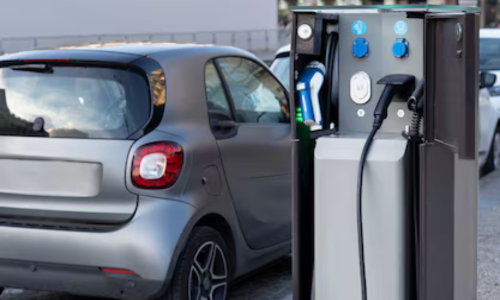
Electric Vehicle Market Competition
EU Implements Tariffs on Chinese EVs: A Move to Protect the European Auto Industry Amid Rising Competitiveness
Electric vehicle market competition took a new turn as the European Union recently introduced tariffs on EVs imported from China. This decisive move, aimed at safeguarding Europe’s auto industry from the influx of competitively priced Chinese EVs, has sparked considerable diplomatic tension between the EU and Beijing. The new tariffs, initially set to address the competitive imbalance due to alleged subsidies within the Chinese auto industry, have drawn a critical response from Chinese officials, who claim the tariffs are politically motivated and discriminatory.
The EU Commission justified the tariffs by pointing to alleged Chinese government support for its EV manufacturers, which allows Chinese companies to produce and sell vehicles at highly competitive prices. According to the EU, this practice, they argue, could lead to an unfair market advantage over European automakers, potentially destabilizing the region’s industry.
By contrast, Chinese officials argue that these claims are unfounded, emphasizing the autonomous progress of their EV sector and its adherence to global trade norms. This development underscores the growing global competition in the EV market, which is becoming a strategic focus area for nations looking to lead in sustainable technology.
The Tariffs’ Impact on the EV Landscape and Global Trade
The EU’s decision, which is set to be fully implemented in early 2025, could have ripple effects across global trade dynamics, particularly in the EV market. The imposition of these tariffs highlights Europe’s strategic intent to encourage local innovation and bolster its EV sector amid rapid advancements by Chinese companies. Chinese automakers, led by brands like BYD and Nio, have not only expanded their market reach within Asia but have also become increasingly prominent in Europe with offerings that rival local brands both in technology and affordability.
This escalation marks a significant phase in the EU’s broader strategy to reinforce its automotive market, which has historically been a major contributor to its economy. European automakers such as Volkswagen, Stellantis, and BMW, have recently pivoted to intensify their EV offerings. With the new tariffs, these companies may see a reduced competitive pressure in the mid-term, potentially allowing for accelerated adoption of European EVs. However, these developments may also lead to increased costs for European consumers who had benefitted from lower prices with the availability of Chinese EVs.
Strategic Concerns and Environmental Considerations
In addition to protecting its economic interests, the EU’s decision aligns with its broader environmental and sustainability goals. Europe has been a leader in establishing emissions standards and has set ambitious targets for carbon neutrality, where EV adoption is central. The recent decision not only reflects a strategic focus on preserving local industry but also on fostering an environmentally sustainable automotive sector.
However, some analysts suggest that limiting access to affordable EVs might inadvertently slow the pace of transition to cleaner energy within Europe. As demand for sustainable vehicles grows, the increased focus on promoting local manufacturing will play a crucial role in shaping Europe’s green energy agenda while maintaining economic stability. This balancing act between market protectionism and environmental imperatives will be critical for European policymakers in the months to come.
Looking Ahead
The EU’s new tariffs against Chinese EVs could be a precursor to a wider economic trend, as countries worldwide strive to protect their technological advancements and industries amid rapid globalization and trade competition. For the global auto industry, this policy shift may signal increased tariffs, subsidies, and protective measures as nations vie for leadership in the EV and broader renewable sectors.
As these trade strategies evolve, companies and consumers alike will face the ramifications of an increasingly competitive, regulated, and sustainability-driven marketplace. The next few years will be critical as the EU navigates its path forward in maintaining a competitive and sustainable auto industry, while managing its economic relationship with China.
The introduction of tariffs on Chinese electric vehicles is just one of the many developments shaping the future of the global automotive industry. At Orator CEO, we consistently monitor and analyze such shifts in market dynamics to provide our readers with timely insights on the intersection of business, technology, and policy. As the electric vehicle market continues to evolve, we keep a close eye on how these changes influence major players in the industry, from manufacturers to policymakers. Stay informed with Orator CEO for more updates on the ongoing transformation of the automotive landscape.
